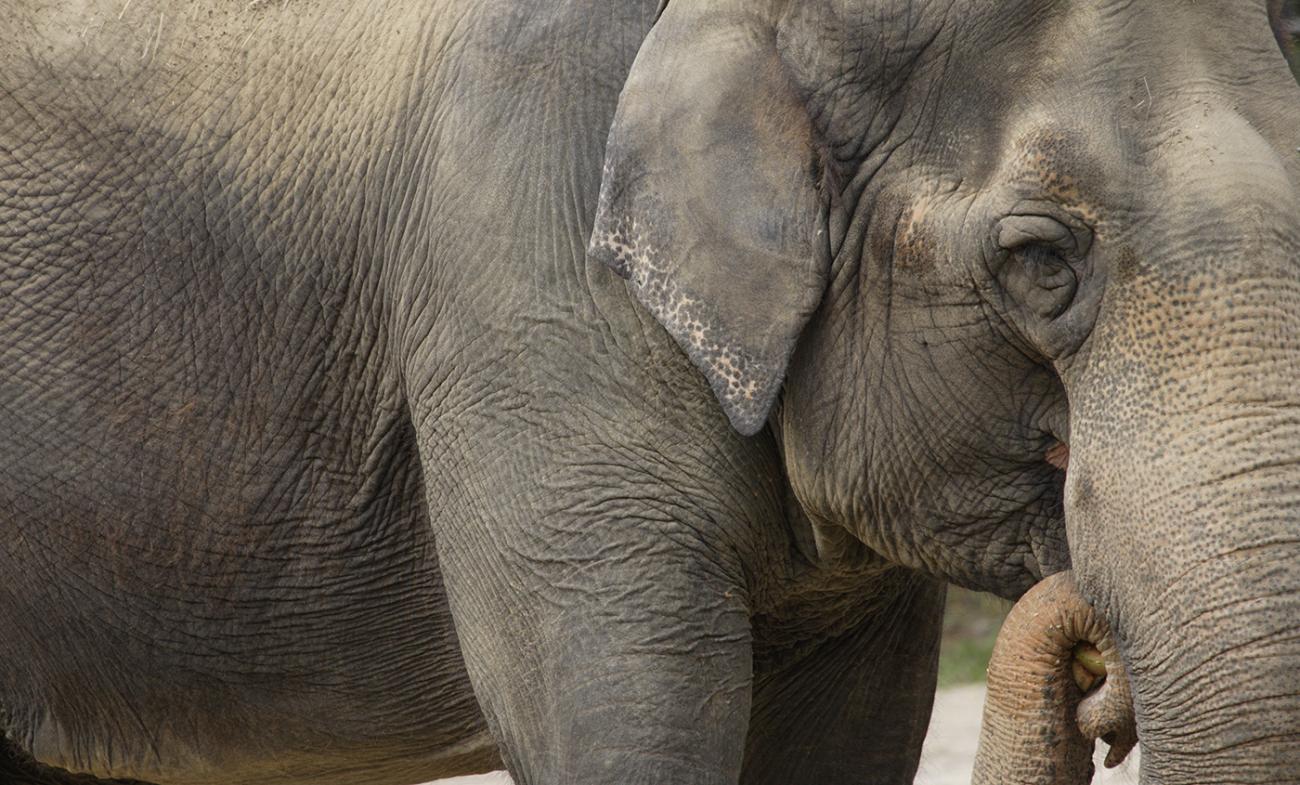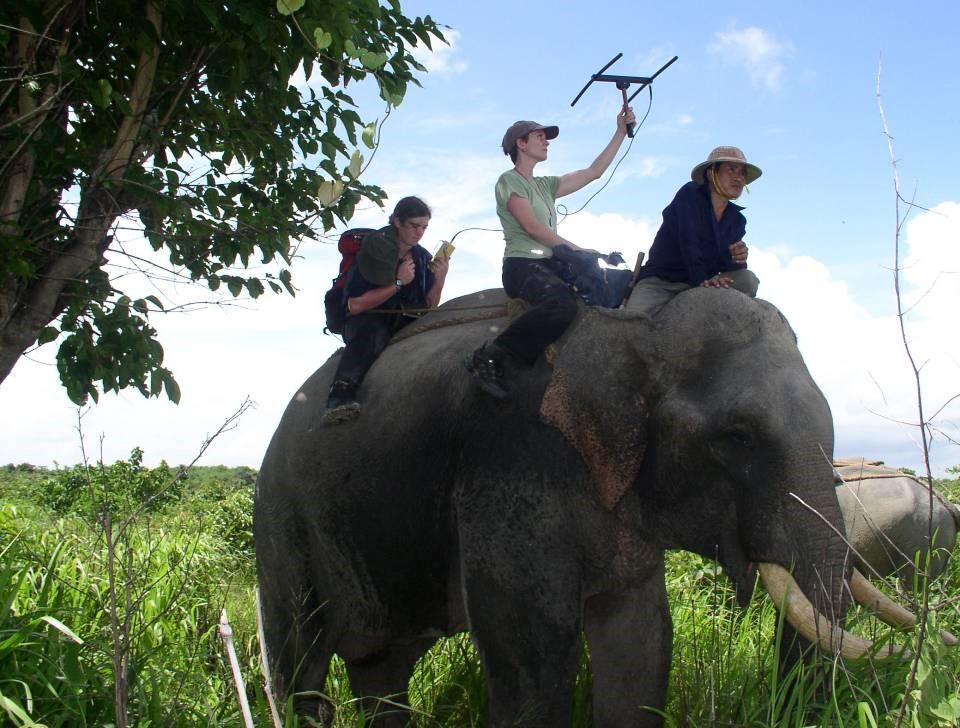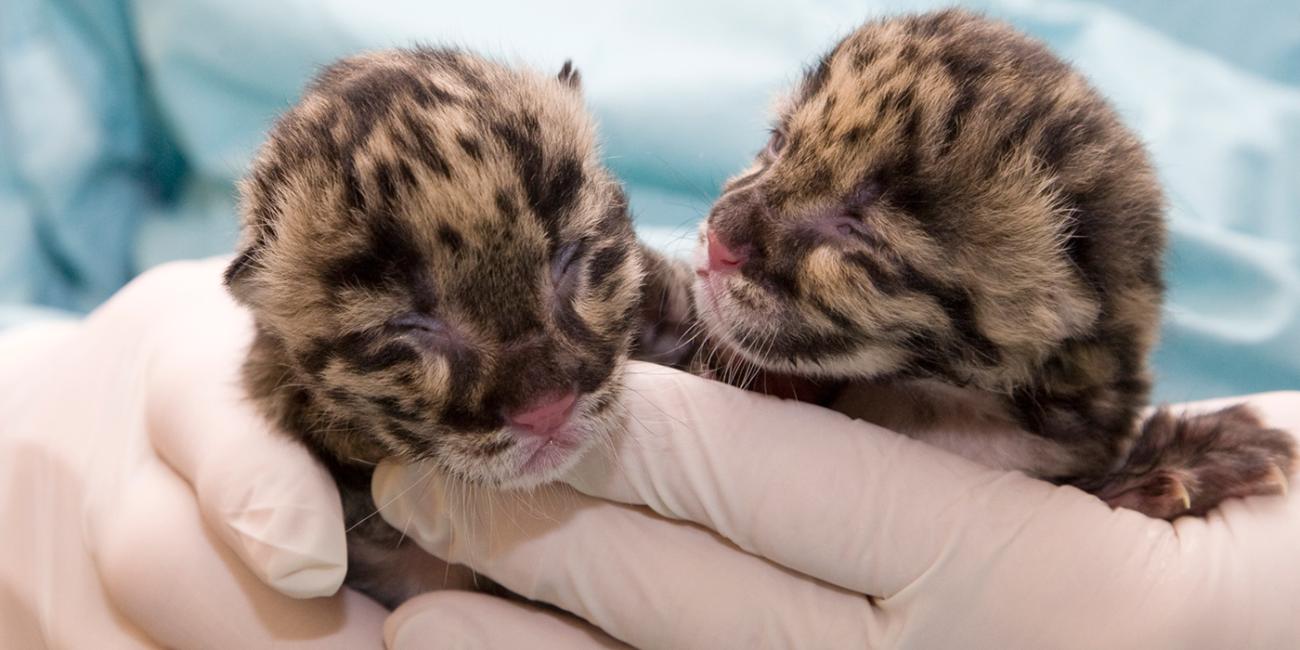Biography
Janine Brown is a research physiologist and heads the endocrinology laboratory at the Smithsonian Conservation Biology Institute. Brown is devoted to increasing knowledge that will lead to better management and conservation of endangered species, both in captivity and in the wild, and coordinates one of the world's largest and most productive endocrinology laboratories that benefits wildlife species. Her research efforts are connected to the scientific disciplines of behavior, reproductive endocrinology and stress management, primarily studying reproductive and behavioral relationships in felids, rhinoceroses, bears and tapirs. She also is a world authority on elephant reproductive biology and her laboratory plays a key role in ex situ management plans for Asian and African elephants in the U.S. and in range countries like Thailand, Myanmar and Sri Lanka.
Brown collaborated in the development of a successful artificial insemination technique for elephants, and consistently works with other institutions interested in understanding and overcoming infertility problems in ex situ elephant populations. She also oversaw the development of noninvasive techniques for monitoring gonadal and adrenal activity in multiple species through the analysis of steroids excreted in urine, feces, hair and saliva. As a result, she now has amassed an extensive database for more than three dozen species demonstrating the diversity of estrous cycle dynamics, seasonal activity, ovulatory mechanisms, and stress function. Fecal and hair corticoid analyses in particular are proving instrumental in assessing the impact of management and husbandry practices on stress and well-being in captive animals in the U.S. and in range countries.
Brown is an animal science major and studied the effects of nutrition on sperm function in dairy bulls for her master's degree, and cystic ovarian disease in dairy cattle for her doctorate. Interestingly, many of the things she learned studying domestic cattle are pertinent to the wildlife species she now focuses on. While she started out strictly as a reproductive physiologist, in the last decade she has turned much of her attention to animal welfare, especially animals managed under human care. Of particular interest is the work she is doing in Asia, helping to identify optimal management strategies for working elephants that will ensure population sustainability and a high level of welfare for individual animals.
In January 2020, Brown received an honorary doctoral degree in veterinary medicine from Princess Sirindhorn Debaratanasuda Kitivadhanadulsobhak at Chiang Mai University. Brown began her work in Thailand in 2004, when she established an endocrinology laboratory at the CMU Veterinary Faculty, the first dedicated to wildlife. She returns annually as a visiting professor and has co-mentored more than a dozen Thai graduate and postdoctoral students, many of whom are now leaders in conservation and wildlife research in Thailand. Her work and that of her CMU colleagues focuses primarily on identifying management factors important to the health, reproduction and welfare of captive elephants in Thailand, with the goal of establishing healthy, sustaining insurance ex situ populations.
Brown is very interested in developing the next generation and practices capacity building through training of graduate students, postdoctoral fellows and interns who will carry on this important, multidisciplinary work. She coordinates numerous training workshops in endocrine techniques as part of university courses in the U.S. and technology transfer efforts in countries like Thailand, Sri Lanka, Brazil, Singapore and China. She also co-founded the International Society for Wildlife Endocrinology and ASEAN Captive Elephant Working Group.


